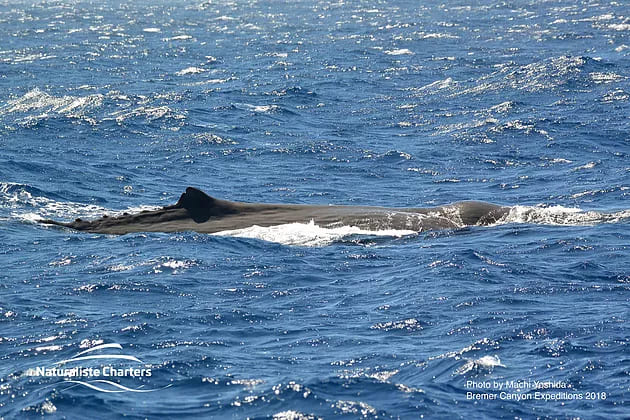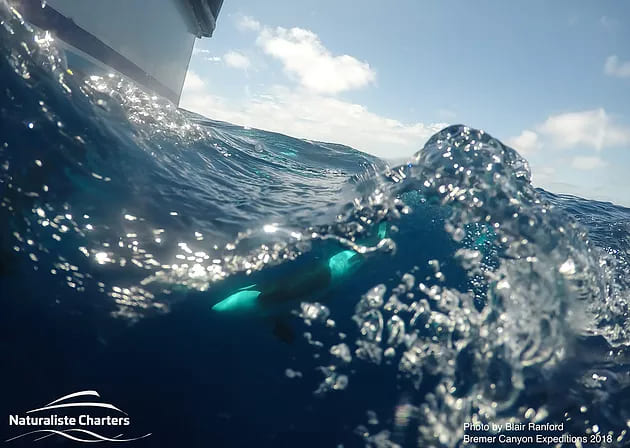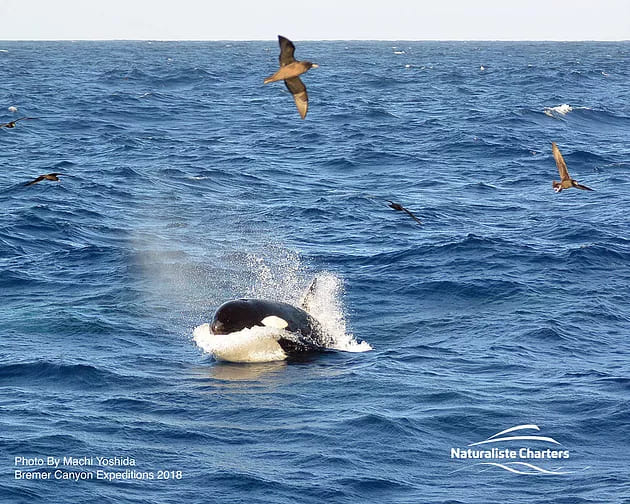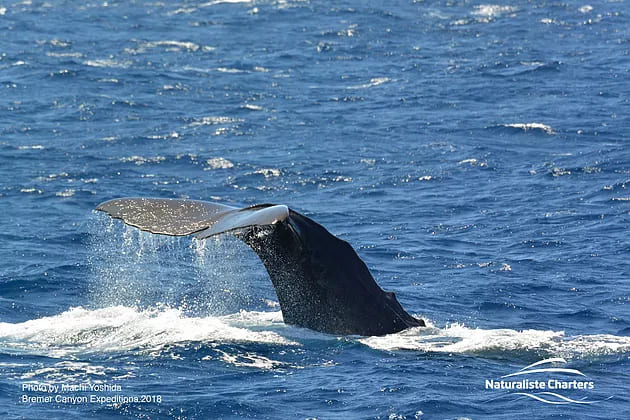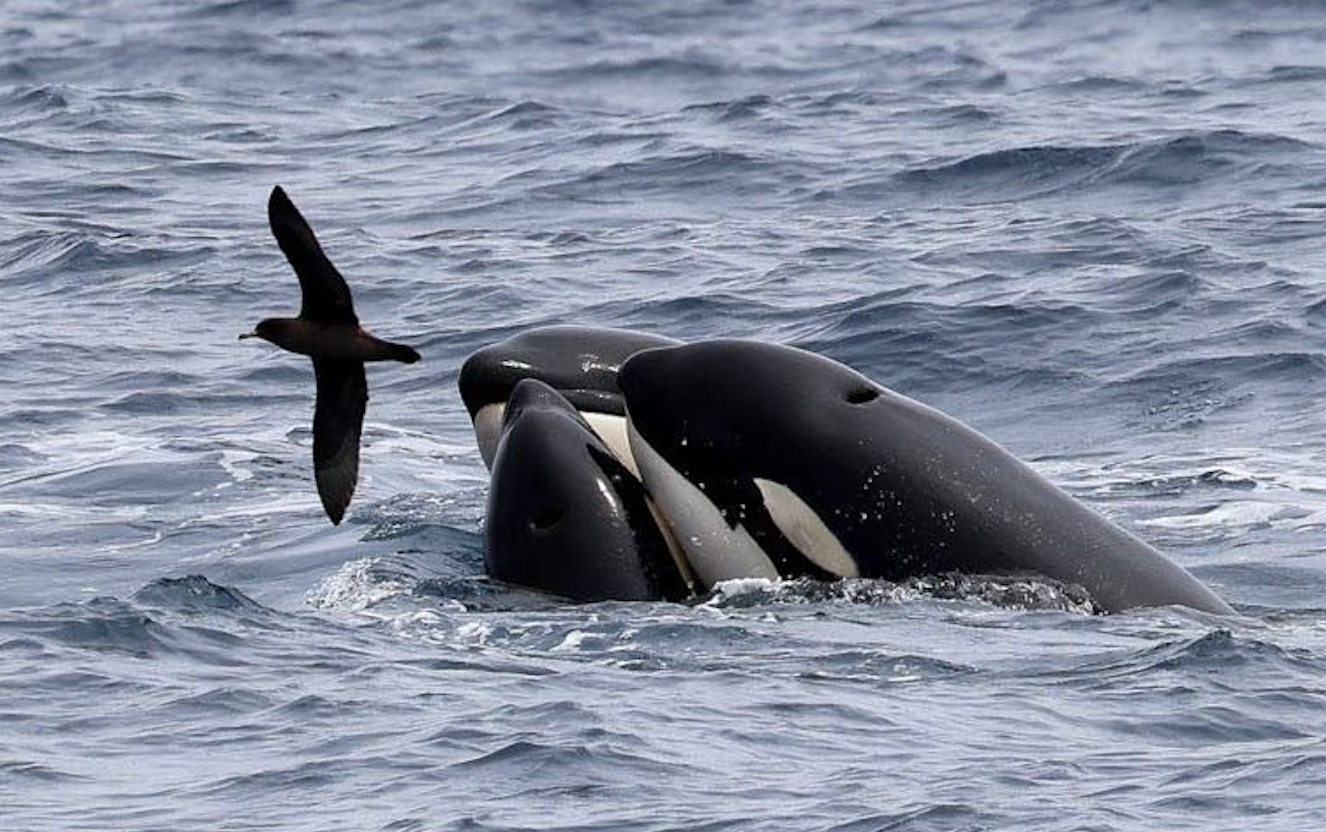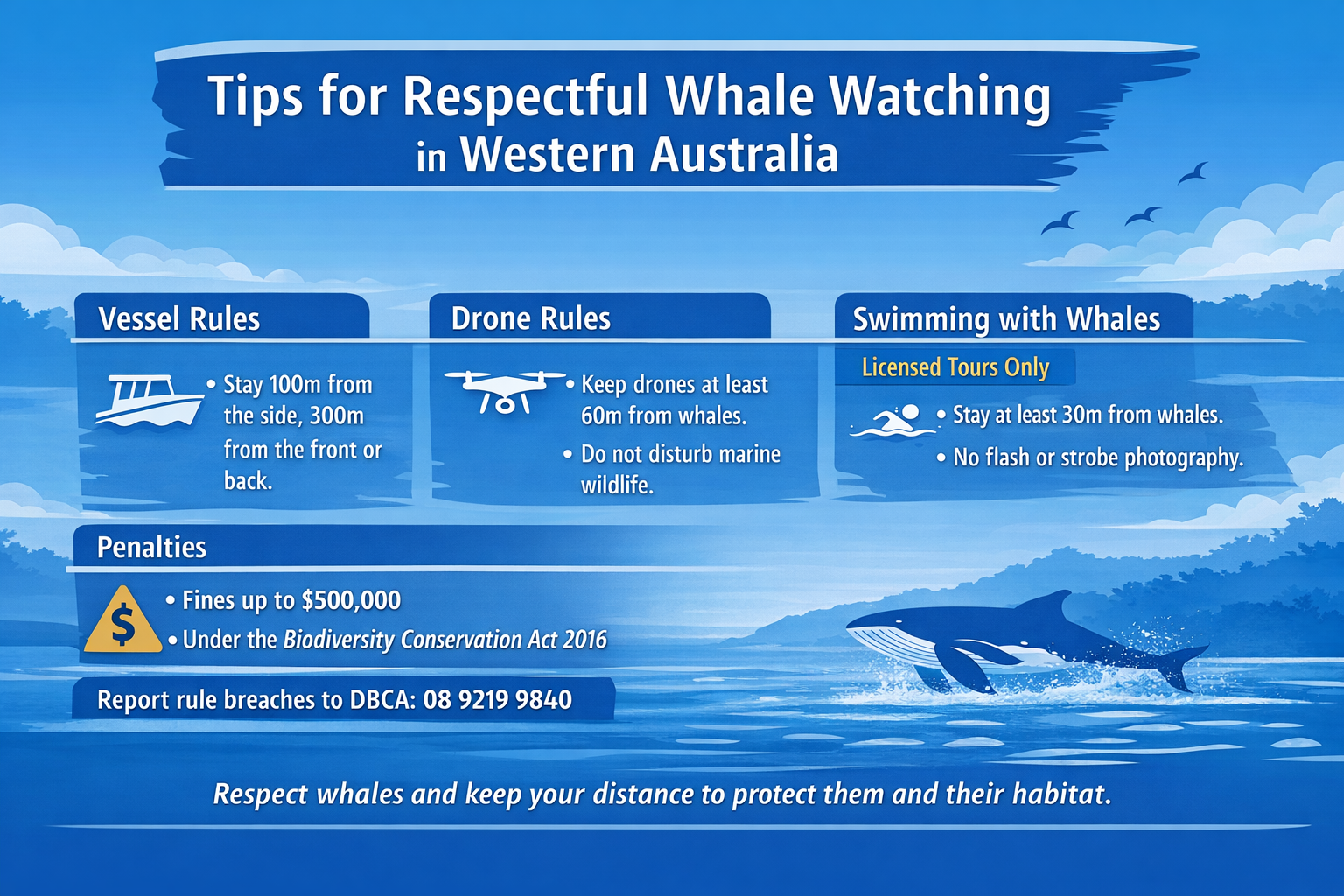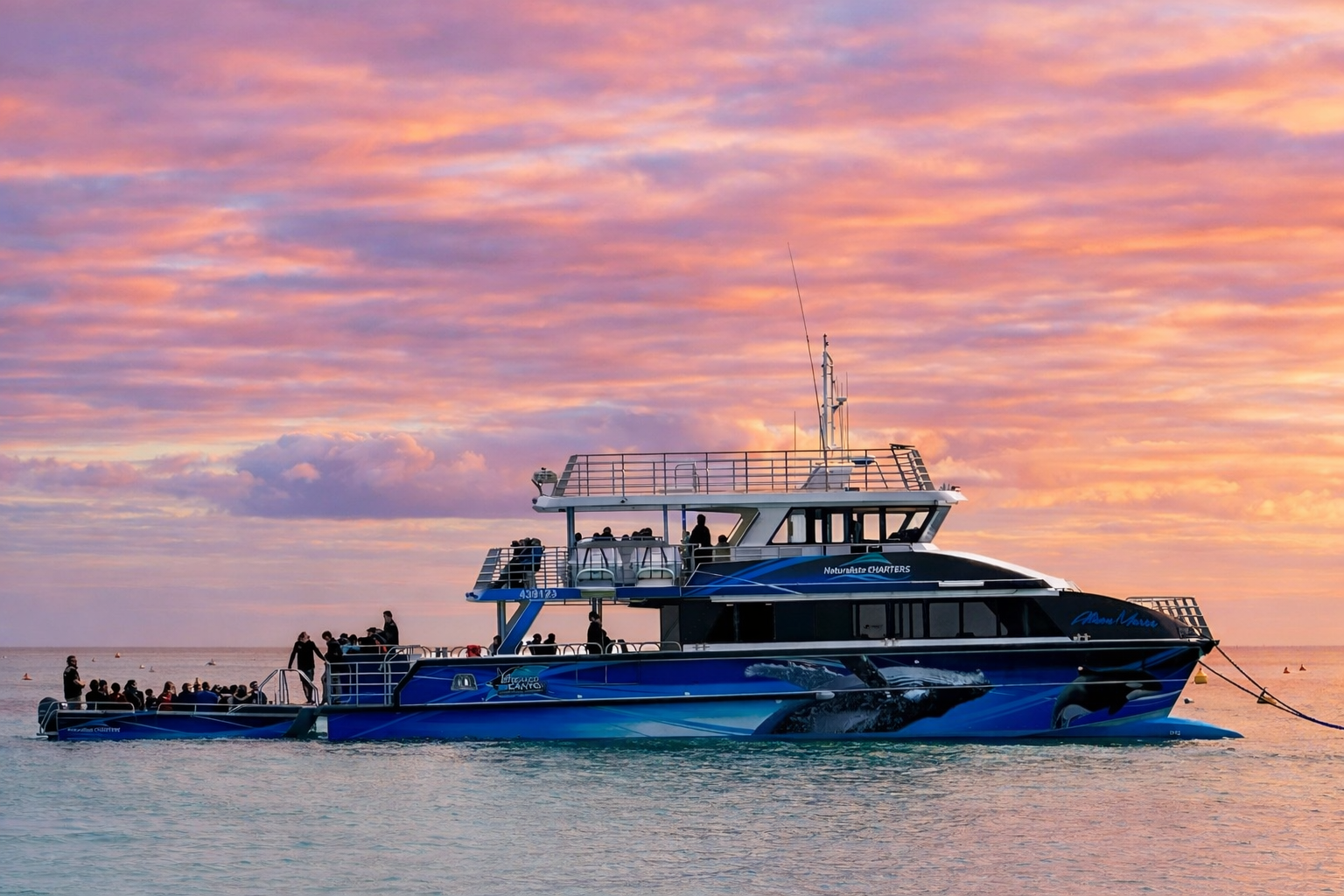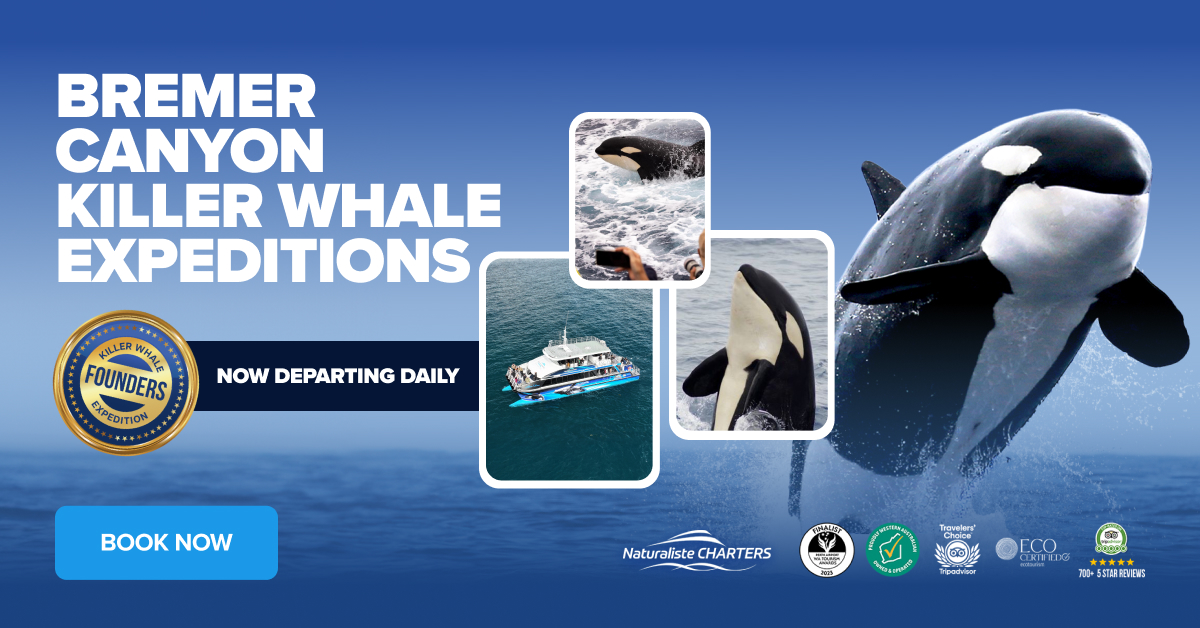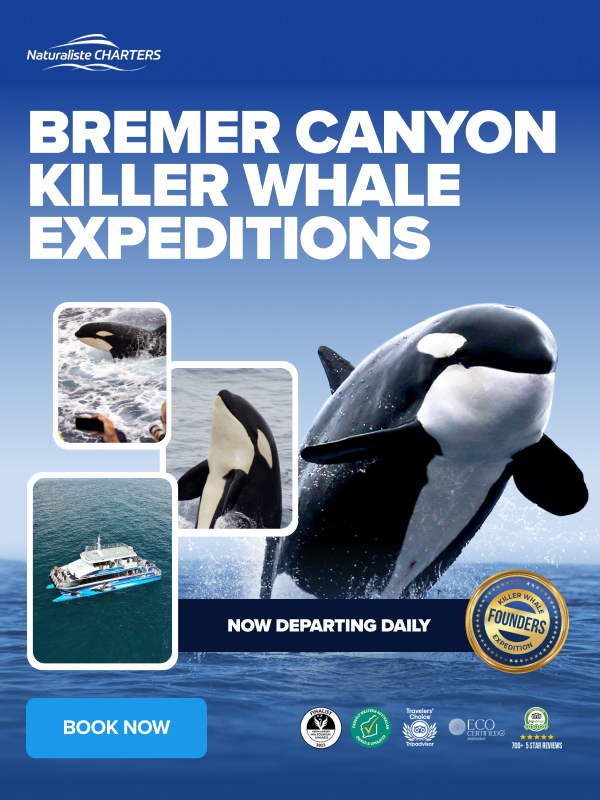We had an absolutely incredible day at the canyon today! When we first dropped off the edge of the continental shelf, we were surrounded by hundreds of small White Faced Storm Petrels hopping across the surface of the water dipping their beaks to feel on the energy and nutrient dense oil on the sea surface, likely left after a kill. We arrived too late to see this one, but soon encountere a floating New Zealand Fur seal. The fur seal was holding up flippers in the air, checking the wind speed and direction while resting. Fur seals often spend two weeks at a time 60km offshore at the canyon, fishing in the deeper ocean for squid in the summer months and bony fish in the winter.
As we ventured further, a large splash caught our attention on the starboard side and all eyes were out on the water. It wasn’t until the animal emerged from the water for the 3rd time that we realised it was a pod of Long Finned Pilot Whales and not just one, nor a few, there were 100 of them. They all began surfacing at different times on all sides of the boat, we didn’t know where to look. Some were surging, looking like a battalion in the water and others were emerging gracefully. Whilst watching them we noticed a few oil slicks on the surface and figured they may have been feeding. Long Finned Pilots are primarily squid eaters and hunt most of their prey in depths of around 200-500m.
As the pod passed through we moved on also on the search for Orca. Panning our eyes over horizon, we sighted blows in the distance and sure enough, 600 m away a slightly tilted blow was constant on our 2 O’clock. Moving in closer we confirmed that it was a Sperm Whale, the 4th sighting this season. We edged closer to get a better look, opened up the sea door and admired the 16m animal logging in front of the bow. Sperm whales are often seen logging on the surface, blowing regularly following a deep dive.
They spend at least 20-30 minutes filling their previously starved lungs and tissues with oxygen. Sperm whales are able to take such deep dives by breathing out most of the air in their lungs and essentially collapsing their lungs in doing so. The exhale forces the air away from the alveoli which is where oxygen is usually passed into the blood stream. Through the expelling of air from their lungs they reduce the absorption of nitrogen and avoid nitrogen bubbles in their blood. This act causes the lungs to no longer serve as a source of oxygen for the body and so they rely on their larger concentration of haemoglobin to transport the oxygen in their blood. Sperm whales also have ten times the amount of myoglobin compared to humans which works as an oxygen storage in the muscles. After a few minutes watching it breathe the Sperm Whale arched its back and lifted it’s fluke (tail) to take another deep dive and so we moved on.
We noticed another blow in the distance and it was we had been waiting for all day. We had found the Orca. As we motored closer we noticed that it was 2 adult males one with an exceptionally tall dorsal fin approaching 6ft in height. We watched as they began porpoising through the open ocean swell. To finish the day with the oceans apex predator far beyond the continental shelf with not another boat in sight was a truly spectacular way for our guests to finish their day.
Until tomorrow,
The Bremer Canyon Crew

